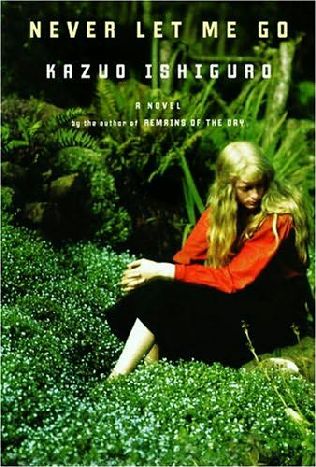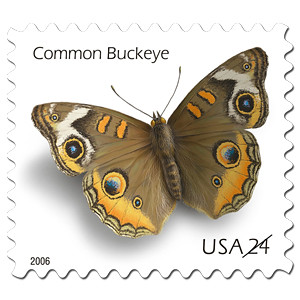I read some books this year. Four fewer than last year. Yes, that’s going to bug me. Once again, I can’t pick a single favorite. Kazuo Ishiguro’s “Never Let Me Go” and Lorrie Moore’s “Who Will Run the Frog Hospital?” are the two at the head of the pack.

“Never Let Me Go” is deservedly at or near the top of many Best of ’05 lists. The book seems to be an ordinary reminiscence of a girlhood spent in a country boarding school – except in all the ways that it isn’t. All of the reviews give away far too much and I think it’s best to delve in without knowing anything more. You won’t be disappointed.

“Who Will Run the Frog Hospital?” is Lorrie Moore’s short novel, published about ten years ago, centering around two girls, best friends, and the way and reasons that their friendship waxes and wanes one summer in the ’70s. The ease and artfulness that push the story along shows that Moore knows what she’s doing in every way. The book is, to mix metaphors, polished and sharp – but elegant as well. Every description is a delight: “The cabbie who came for us was a strange dwarf of a man: balding, shiny head; fingers fat as wursts; his body squat and globular; his legs so short and misshapen there was some apparatus constructed on the pedals of the cab so that he could drive.” I think I’ll be rereading this book soon as – for anyone who wants to right – there is so much to glean from such a small package.


“The Preservationist” and “Fallen” by David Maine are clever but faithful retellings of Old Testament stories, Noah’s ark and Cain & Able, respectively. Each chapter of “The Preservationist” rotates narrator, as does each section of “Fallen,” which is also told backwards (beginning with chapter 40). But the narrative tricks don’t stop Maine from making real characters out of the Judeo-Christian totems. Neither of these books aim to be epic – they’re simple, excellent fictions.

If you haven’t read Haruki Murakami yet, don’t start with his newest novel, “Kafka on the Shore” – it’s like taking a horse pill when the syrup will do the trick at half the price – perhaps try “South of the Border, West of the Sun,” a simpler, relatively realistic tale about a childhood crush reencountered. “Kafka on the Shore” is good and though it’s been called ‘difficult’ I don’t think that’s accurate. No one reading this is going to have a problem with the double narrative running through the story – it’s the lack of answers that might annoy. Like David Lynch’s “Lost Highway,” you have to stop trying to figure it out and simply enjoy the ride. (Actually, Murakami has suggested in interviews that to understand the book you have to reread it many times … So maybe there are answers and I’m full of it.)
David Mitchell’s “Cloud Atlas” is six stories, each of which is interrupted halfway through by he following story until the sixth is told in full, at which point the fifth ends, then the fourth, etc. etc. Sure, it’s gimicky but it worked for me and it’s a much deeper, affecting story as a whole. It’s a novel about the depths of things that people are willing to do to each other for power – on both the micro and macro level. I can’t help but make it sound boring, can I? Every page is enthralling – I swear.
The war: Didn’t realize that it affected my reading list this year until I looked it over. “The 9/11 Comission Report” is the revelation that everyone said it was, what, eighteen months ago. Readable though bureaucratic in parts. Jon Ronson’s “The Men Who Stare At Goats” follows up his 2001 book, “Them: Adventures with Extremists.” In the new one he investigates the history of the U.S. government’s unorthodox military experimentation, including a psychic division which focused on gaining the ability to kill a goat simply by staring at it. The kicker is: Ronson is not a lunatic but a fairly well-respected British journalist. Both of his books were made into documentaries for British television, both are excellent, but only one of them ends with the author witnessing Dick Cheney worshipping an owl – and I’m not telling you which. Christopher Hitchens’ “Love, Poverty, and War” is a doorstopper collection of essays, the first third are appreciations, the middle assassinations and the final third are his uncollected war pieces. Hitchens is a liberal who’s in favor of the war in Iraq (though less and less in favor of the way it’s being conducted; he endorsed Kerry last year). Hitchens is an elegant writer on any subject and always has an interesting take without pushing for interestingness to the point that he’s playing devil’s advocate (the origin of the phrase devil’s advocate is included in this book’s Mother Theresa essay) – but the war section was the most important to me. It’s too easy to be distracted by O’Reilly, Coulter and the rest of the usual suspects – it remains important to read the smart people we disagree with. That said, I’m eager to read George Packer’s “Assassin’s Gate.” Packer writes for the New Yorker and documented the run-up to the war (which he supported) and the subsequent disaster it has become.
In “Homicide,” David Milch follows the Baltimore Homicide Department for one year (in the late 80s); the book inspired the NBC TV sho. Fascinating and gruesome. Milch co-created HBO’s “The Wire” which is a very novelistic cop drama available on DVD and highly recommended.

“Jar City” is the first of Iceland’s Arnaldur Indridason’s mysteries to be translated into English – I imagine I’ll be reading the next.
Armand Marie Leroi’s “Mutants,” winner of the Guardian’s First Book Award, is less a catalogue of genetic mutations than an explanation of the way in which our genetic makeup is a series of mutations from the start. It’s been a year since I read the thing and I know I’ll get even more wrong if I keep going: it’s a not-too-dense biology book and it’s exceedingly well-written.
Chuck Klosterman’s essays on pop culture in “Sex, Drugs and Cocoa Puffs” are hilarious and, sure, profound. And there’s undeniable fun in reading someone be smart about Saved By the Bell. If you don’t go for the book, he writes monthly columns in Esquire, www.spin.com and www.espn.com.
Mary Roach’s “Stiff” and Anthony Bourdain’s “Kitchen Confidential” are entirely different except that they’re both very entertaining non-fictions. “Stiff” is a pop-science book subtitled “The Curious Lives of Human Cadavers” which tells you everything you need to know except that Roach is hilarious. “Kitchen Confidential” is three books in one: behind the scenes in the New York restaurant business, memoir of a celebrity chef and (to a lesser extent) kitchen instructional – and Bourdain is pretty funny himself.
A few that didn’t work for me: God’s Secretaries, Memoirs of Hecate County, A Perfect Vacuum (June wasn’t a good reading month) and Beyond Black. Everything else was pretty good – which is really amazing in hindsight: only four duds.
January1. Mutants, by Armand Marie Leroi
2. Cloud Atlas, by David Mitchell
February3. Kafka on the Shore, by Haruki Murakami
4. The Stars at Noon, by Denis Johnson
5. Homicide: Life on the Streets, by David Milch
March6. The Mind of the Mnemonist, by A.R. Luria
7. Goodbye, Columbus, by Philip Roth
8. Great Exploration Hoaxes, by David Roberts
9. Scoop, by Evelyn Waugh
10. Utopia Parkway: The Life and Work of Joseph Cornell, by Debora Solomon
11. The Image of the City, by Kevin Lynch
April12. Myra Breckenridge, by Gore Vidal
13. Jar City, by Arnaldur Indridason
14. The Missing Head of Damasceno Monteiro, by Antonio Tabucchi
15. The Final Solution, by Michael Chabon
16. Like A Rolling Stone: Bob Dylan at the Crossroads, by Greil Marcus
May17. The Men Who Stare at Goats, by Jon Ronson
18. The Preservationist, by David Maine
June19. God's Secretaries, by Adam Nicolson
20. Art of the Japanese Postcard
21. Memoirs of Hecate County, by Edmund Wilson
22. A Perfect Vacuum, by Stanislaw Lem
23. Bringing Down the House, by Ben Mezrich
July24. Death in the Andes, by Mario Vargas Llosa
25. Love, Poverty, and War, by Christopher Hitchens
26. H.P. Lovecraft: Against the World, Against Life, by Michel Houelbecq
27. Freakonomics, by Steven D Levitt and Stephen J. Dubner
28. Understanding Comics, by Scott McCloud
29. The Instant Enemy, by Ross MacDonald
30. Candy Freak, by Steve Almond
31. South of the Border, West of the Sun, by Haruki Murakami
August32. The 9/11 Commission Report
September33. Beyond Black, by Hilary Mantel
34. Never Let Me Go, by Kazuo Ishiguro
October35. Sex, Drugs and Cocoa Puffs, by Chuck Klosterman
36. Anansi Boys, by Neil Gaiman
37. Class Trip, by Emmanuel Carrere
38. The Island of the Color Blind, by Oliver Sacks
39. Who Will Run the Frog Hospital?, by Lorrie Moore
40. Memories of My Melancholy Whores, by Gabriel Garcia Marquez
41. Skye Blue, by Chrissy Elgersma
42. Oracle Night, by Paul Auster
November43. Stiff, by Mary Roach
December44. Kitchen Confidential, by Anthony Bourdain
45. Fallen, by David Maine
46. My Name is Red, by Orhan Pamuk











